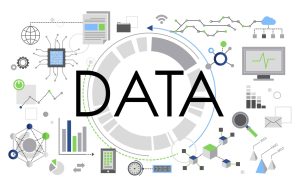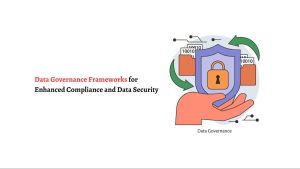How Data Intelligence & Decision Intelligence Boost Business

AI and ML have penetrated every aspect of the business world, so much so that it is impossible to operate without this technology anymore. Personalized social media, automatic spam mail identification, face ID locks, digital voice assistants- there are too many examples of AI and ML at every level. However, if we think of business-specific use cases, data intelligence and decision intelligence can be called AI’s latest and most critical technology dimensions.
Data filtering into valuable sets is the essence of Data Intelligence. It lets businesses optimize operations and increase efficiency while reducing risks and overheads. It is the most important ability a business can have as it provides deep insight into its functions and causes for its present state. Decision Intelligence is where the data is used to make business decisions.
If you have data heaps obtained from web research and other activities and are confused about how you should go about using them to your benefit, then this blog is for you. You will learn more about data intelligence and decision intelligence, including how they can apply to your situation.
The Difference Between Data Intelligence and Decision Intelligence
Data Intelligence refers to a system delivering reliable and trustworthy data to add value to a business. The system should also be capable of providing information about that data, i.e., metadata. Organizations put data intelligence systems in place to answer pertinent questions related to enterprise data like, who uses it, why is it used, what’s its point of origin, the reasons to keep the data, when to access the data, its last update schedule, how to use the data more efficiently, how data sets are related to one another, etc. The goal of Data Intelligence is to support and enhance human understanding of data.
Decision Intelligence refers to the commercial use of AI and ML to automate important business-related decision-making. It impacts every aspect of a business since its goal is to optimize operational processes for improved efficiency and reduced cost. It consists of modeling scenarios using software to produce solutions in tandem with its human counterparts regarding inventory, customer, supply chain, project, and other business aspect management.
The Importance Of Data Intelligence and Decision Intelligence
There are plenty of reasons to utilize Data and Decision Intelligence for your business. Here are a few:
Customer/Client Profiling and Outreach
Client research is a must for any business to get a grip on the market’s interests. And the data quantity it produces is never small. However, it is not always of the best quality, requiring a filtration process to retain only the most valuable data. Only then can you create appropriate customer/client profiles that truly reflect your target market.
Data intelligence plays a vital role here. By helping you clean, analyze, categorize and produce insightful reports on the data, Data Intelligence can produce the necessary segmentation of customers based on various factors. These can include demographics, preferences, purchase behaviors, geography, age, sex, height, etc.
Once this has been accomplished, you’ll need to devise an effective marketing strategy to reach them effectively and gain more conversions. This is where decision Intelligence comes in. By using sophisticated AI algorithms, the available customer data is further processed to yield practically applicable decisions that can make the marketing strategy effective. Thus, the combination of these two gives you the ability to spearhead your business in the market.
Business Finance Management
Enterprise financial data contains a myriad of data types, each being very valuable. There is simply no room for errors here, as any mistake can cost the company dearly. The need for accurate and quick Data Intelligence can’t be overstated here. It helps you categorize the variety of financial transactions like vendor/supplier payments, employee salaries, investments, dividend payouts, loan repayments, taxation, etc.
Intelligible and accurately compiled reports of such valuable information are crucial to making future financial decisions for the company. This is where Decision Intelligence comes in. The software employed can help stakeholders analyze the present market and aid in investment decisions.
Automated trading software, for example, can invest and disinvest money far more quickly than its human counterpart. It does so with better prediction capabilities, thus improving the chances of making more gains. The AI can also scour vendors/suppliers who can provide materials/services at a lower cost. It can identify cash flow leaks and aid in the redirection of that money to more lucrative places.
Supply Chain Management
Today’s supply chains stretch all over the globe, making their management a very complex task. It involves numerous nodes, from the production facility to the final point of purchase, which requires constant monitoring and data gathering. You can get a true picture of the status of this complex structure and its various components by applying Data Intelligence.
Logistical components are sources of vast data quantities, producing important data like real-time location, the quantity of load, estimated time of arrival, vehicles in operation, the details of the vehicle’s condition, etc. You need to discern important data from unwanted sets and perform a quick and accurate data analysis.
The analyzed data can be used to apply Decision Intelligence. With it, you can better decide on things like safer and quicker routes for the vehicles, transit insurance providers with lower costs, legal issues that may be holding up deliveries, returns, how to manage a mishap/delay, etc. Such smoothening of your supply chain keeps the entire pipeline running efficiently alongside lowering costs and increasing the monitoring capabilities of the various nodes.
Product/Project Management
Much like a company’s supply chain, its project/product management pipeline has a string of components that must be coordinated well to achieve expected results. Any issue at any point in the pipeline can lead to all kinds of troubles like delays, losses, inventory shortages, etc. The automation of the factory floor and other sections means immense data that needs to be processed to maintain its functionality.
Thus, it becomes inevitable for you to apply Data Intelligence actions here. It will aid the detection and preemptive correction of issues from one end of the pipeline to the other. You can combine your vendor supply chain and employee productivity data to create a complete picture of the project’s/production efficiency, costs, and timelines.
Decision Intelligence can then help you make informed decisions on which person to employ on which part of the pipeline, when to alter the production line for better efficiency, how to change the project’s main aspects without affecting the overall progress too much, etc. In the end, you have a project/production pipeline that is resilient to disruptions of all varieties while remaining fully data-driven for optimal performance.
In Conclusion
Data Intelligence and Decision Intelligence should not be seen as competing technologies for business progress but as complimenting ones. Be it data from client/web research, or any other source, Data Intelligence is a must to analyze it and turn it into a valuable asset. Decision Intelligence is your gateway to high returns using that asset by helping you make better decisions that minimize risks, better predict business-related scenarios, and maximize productivity. When used in consolidation, both of these will retain and grow your market and brand values as a result.






